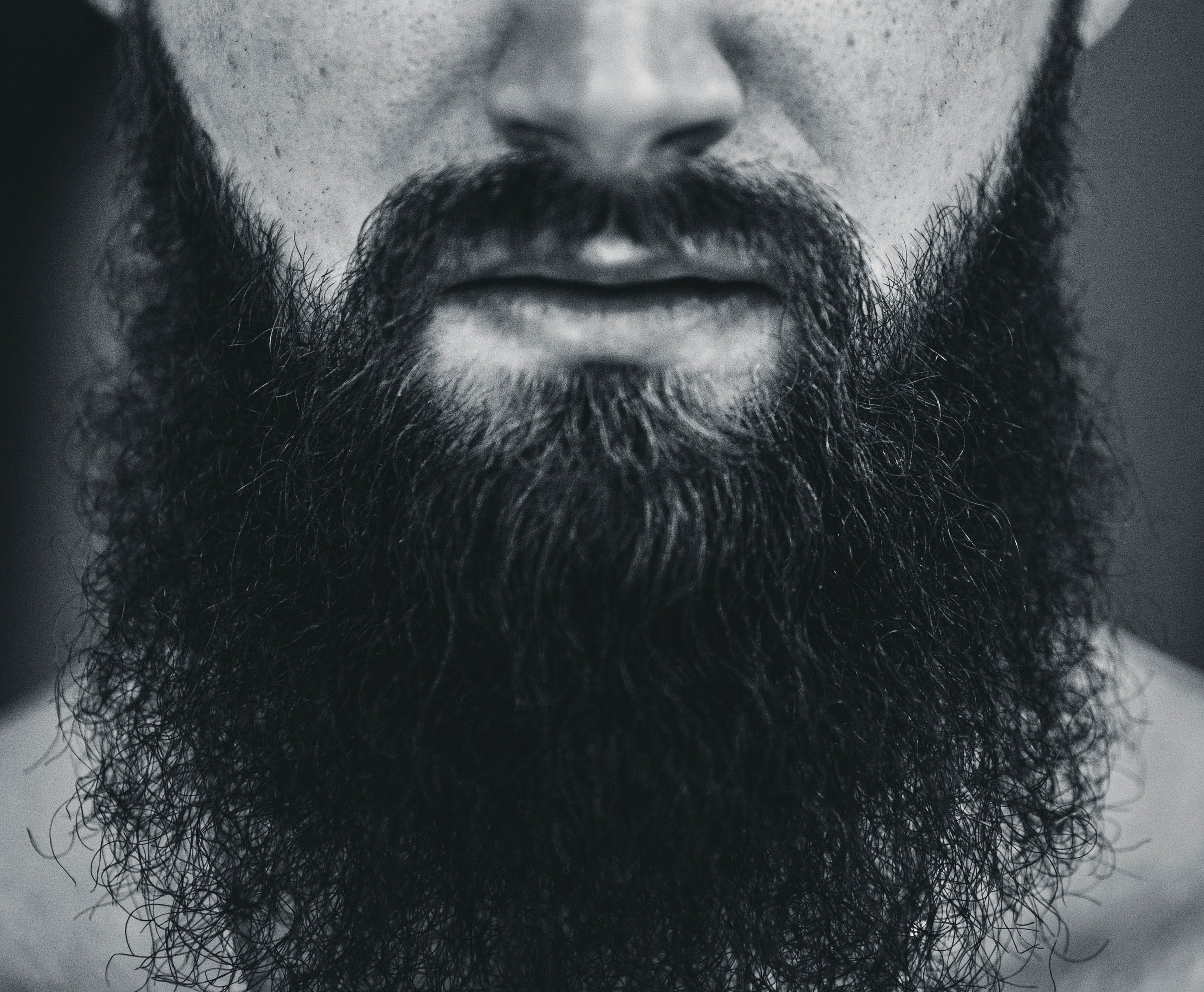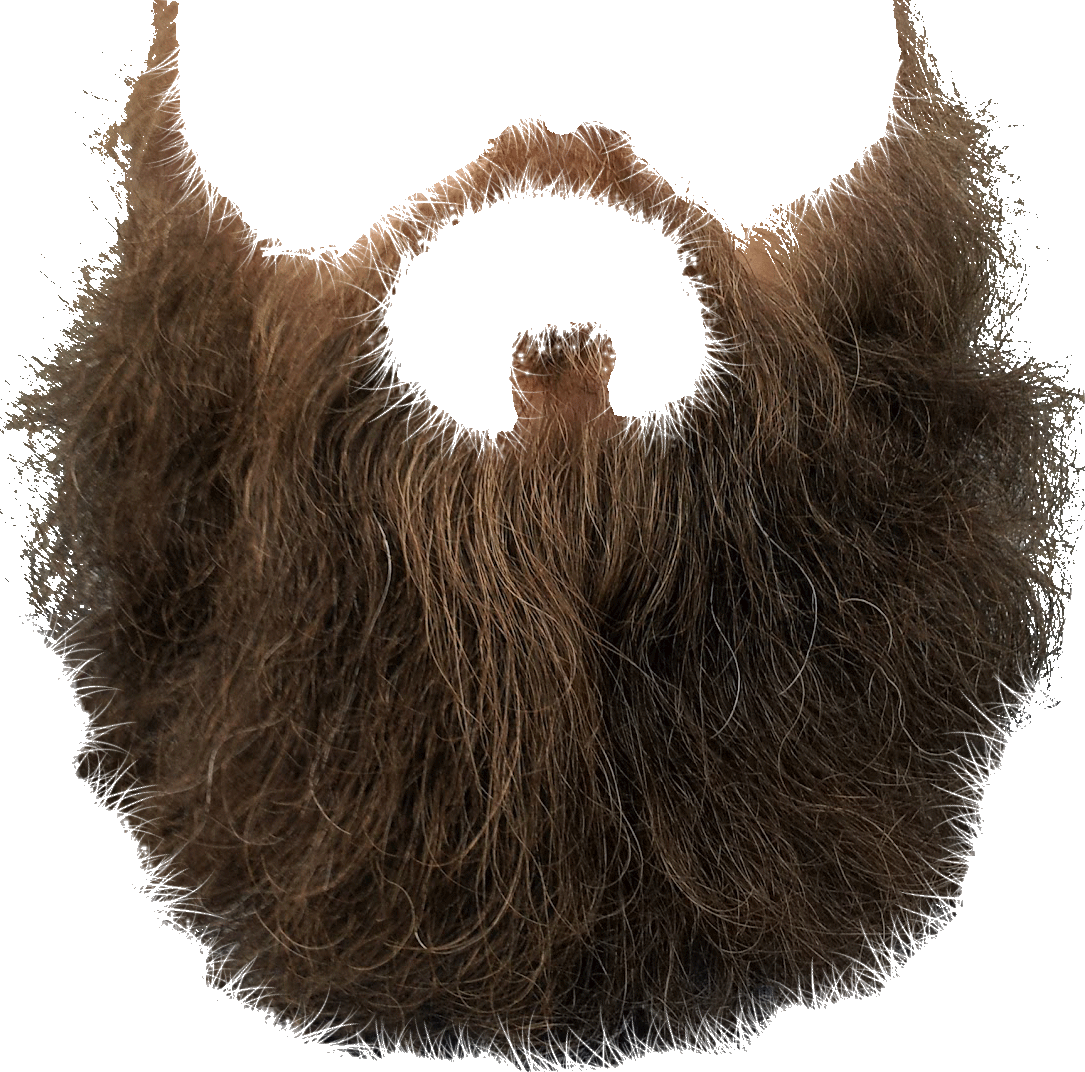
What is a beard?
There are different views on what a beard is. How does the Arabic language actually describe it? The beard is called 'lihya' in Arabic. It contains facial hair from the entire jawline and part of the cheeks, up to the throat.
All the hair that falls under it is described as the beard. We also understand the same from the English language.

Role of the beard in Islam
What does a beard have to do with Islam? Well, quite a lot. This is because it is a tradition of the Prophet Muhammad (ﷺ).
In addition, having the beard is an act of the Fitrah (natural disposition). It is natural for the man to grow his beard.
The beard therefore has an important position in Islam. It is also a custom in other religions to grow the beard. Such is the custom of Jesus in Christianity and of Moses in Judaism. Some of the followers of those two religions command growing the beard.
The facial hair of the Muslim is different from other religions. For example, the mustache is trimmed short and the beard has a certain minimum length.
Some sects believe that the beard has no specific role in Islam. They therefore do not mind shaving or trimming the beard. The most correct view is that the beard is a mandatory Sunnah. Muslim men should therefore grow their beards.
Is the beard mandatory?
The obligation of the beard is not in the Quran. Because of this, Quranists believe that letting go of the beard has no role in Islam.
Moreover, it is an obligatory Sunnah to grow the beard. This is according to various traditions and opinion of the Madhabs.
In the Hadith we see that the Prophet (ﷺ) ordered the Muslims to grow their beards. Because of this, having the beard falls under the Fardh (mandatory) Sunnah.
 The Prophet (ﷺ) said:
"Cut the mustache short and let the beard grow."
[Sahih al-Bukhari 5893]
The Prophet (ﷺ) said:
"Cut the mustache short and let the beard grow."
[Sahih al-Bukhari 5893]
How long the beard should be
There is no authentic narration indicating how long the beard of the Prophet (ﷺ) was. It is confirmed that he had a full and long beard.
The correct length of a Muslim beard exceeds a fist length. This means that if the beard is grabbed, the beard will stick out.
The Companions shortened their beards when it exceeded a fist length. That is the allowed situation to shorten the beard a bit.
So to have the correct beard length, one has to look at how the Companions acted. They all had long and full beards, which exceeded a fist's length.
Keeping a short beard is not allowed according to Islam. The beard should be longer than that.
Removing the beard
It is common these days for men to shave off their beards. That has gained widespread acceptance by Western standards. Also, there are several companies that reject a beard, causing people to shave their beards.
According to the correct opinion of scholars, it is obligatory to grow the beard. That is because of the saying of the Prophet (ﷺ) where he commanded it.
 The Prophet (ﷺ) said:
"Cut the mustache short and let the beard grow."
[Sahih al-Bukhari 5893]
The Prophet (ﷺ) said:
"Cut the mustache short and let the beard grow."
[Sahih al-Bukhari 5893]
The companions immediately understood from this to grow the beard. So one should make it a long beard.
When shaving the beard, one goes against the command of the Prophet (ﷺ). And counteracting an obligation is of course forbidden to do.
Shortening the beard
Keeping a short beard by trimming it regularly is not allowed in Islam. The correct way to shorten is when the beard is longer than a fist length. Then it is permissible to shorten the beard to the length of a fist.
There are still many who trim their beards to the skin, or trim the beard too short. This is not allowed according to Islam.
The companions shortened their beards when this exceeded a fist length. They also trimmed the sides of their beards when it got too long.
The Muslim man should know when it is allowed to shorten his beard. When exactly this is possible and how much he can cut off, you can read in the article about shortening the beard.
Dyeing the beard
In countries like Pakistan and India, beards are often dyed. This is usually done in a red color. Dyeing the beard is allowed in Islam. It is only not allowed to dye the beard black.
One can dye the beard with Henna, Katam or other dyes. The Sunnah is to dye the beard as soon as many gray hairs have appeared in the beard or head.
The Muslim man is recommended to dye his gray hair. This is to distinguish themselves from the Christians and Jews, because they do not usually do this.
 The Prophet (ﷺ) said:
"The Jews and the Christians do not dye (their gray hair), so do the opposite of what they do (i.e. dye your gray hair and beards)."
[Sahih al-Bukhari 3462]
The Prophet (ﷺ) said:
"The Jews and the Christians do not dye (their gray hair), so do the opposite of what they do (i.e. dye your gray hair and beards)."
[Sahih al-Bukhari 3462]
Maintaining the beard
Islam encourages the Muslim man to make himself beautiful. For example, it is recommended to apply beard oil and musk to the beard.
Maintaining the beard is also important for hygiene. For example, food residues can get into it if you do not wash and maintain your beard well enough.
Every beard differs in style and length. If the beard grows a lot in width, it can be trimmed. That is what the Companions usually did.
Narrations about the beard
The Quran does not state that the Muslim should grow a beard, but this is indicated when we look at the Hadith.
There are several narrations about growing the beard. We also see how it should be maintained. Below we share some well-known narrations about the beard.
 The Prophet (ﷺ) said:
"The Jews and the Christians do not dye (their gray hair), so do the opposite of what they do (i.e. dye your gray hair and beards)."
[Sahih al-Bukhari 3462]
The Prophet (ﷺ) said:
"The Jews and the Christians do not dye (their gray hair), so do the opposite of what they do (i.e. dye your gray hair and beards)."
[Sahih al-Bukhari 3462]
 The Prophet (ﷺ) said:
"Cut the mustache short and let the beard grow."
[Sahih al-Bukhari 5893]
The Prophet (ﷺ) said:
"Cut the mustache short and let the beard grow."
[Sahih al-Bukhari 5893]
 Jaabir ibn Abdullah reported:
Abu Qubafa (father of companion Abi Bakr) came to the Prophet (ﷺ) and his hair and beard were white. The Prophet (ﷺ) said to him: "Change it, but avoid black."
[Sahih Muslim 2102b]
Jaabir ibn Abdullah reported:
Abu Qubafa (father of companion Abi Bakr) came to the Prophet (ﷺ) and his hair and beard were white. The Prophet (ﷺ) said to him: "Change it, but avoid black."
[Sahih Muslim 2102b]
 Jarir ibn Samura reported:
The Prophet had some gray hairs in his hair and beard. When he applied oil, it didn't show. When he didn't apply oil, it became visible. He had a full beard.
[Sahih Muslim 2344b]
Jarir ibn Samura reported:
The Prophet had some gray hairs in his hair and beard. When he applied oil, it didn't show. When he didn't apply oil, it became visible. He had a full beard.
[Sahih Muslim 2344b]
 Anas ibn Malik reported:
The Prophet (ﷺ) was not noticeably tall or short. Nor was he very white or tan. His hair was neither very curly nor very straight. Allah sent him (as an apostle) at the age of forty (and after) he stayed ten years in Makkah and another ten years in Madinah. Allah took him to Himself at the age of sixty, and he had barely ten white hairs on his head and in his beard.
[Sahih al-Bukhari 5900]
Anas ibn Malik reported:
The Prophet (ﷺ) was not noticeably tall or short. Nor was he very white or tan. His hair was neither very curly nor very straight. Allah sent him (as an apostle) at the age of forty (and after) he stayed ten years in Makkah and another ten years in Madinah. Allah took him to Himself at the age of sixty, and he had barely ten white hairs on his head and in his beard.
[Sahih al-Bukhari 5900]


